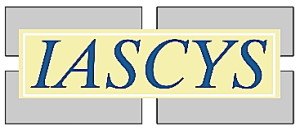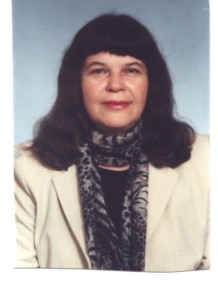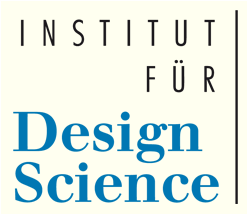With great pleasure we introduce our co-organizers from leading areas of practice and theory development in the systems field. Each organization is represented by key individuals who we are fortunate to have participating in this year’s EMCSR 2014.
International Society for the Systems Sciences
The International Society for the Systems Sciences (ISSS) is among the first and oldest organizations devoted to interdisciplinary inquiry into the nature of complex systems, and remains perhaps the most broadly inclusive. The Society was initially conceived in 1954 at the Stanford Center for Advanced Study in the Behavioral Sciences by Ludwig von Bertalanffy, Kenneth Boulding, Ralph Gerard, and Anatol Rapoport. In collaboration with James Grier Miller, it was formally established as an affiliate of the American Association for the Advancement of Science in 1956. Originally founded as the Society for General Systems Research, the society adopted its current name in 1988 to reflect its broadening scope.
In the intervening years, the ISSS has expanded its scope beyond purely theoretical and technical considerations to include the practical application of systems methodologies to problem solving. Even more importantly, it has provided a forum where scholars and practitioners from across the disciplinary spectrum, representing academic, business, government, and non-profit communities, can come together to share ideas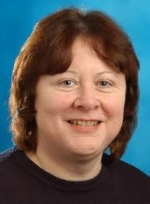 and learn from one another.
and learn from one another.
Jennifer Wilby is a Senior lecturer and member of the Centre for Systems Studies in the Business School at the University of Hull, UK. Jennifer is a Fellow of the International Academy of Systems and Cybernetic Systems (IASCYS), President of the United Kingdom Systems Society (UKSS), Past President (2010/11) and Trustee of the ISSS, Vice President of Administration for ISSS, editor for several ISSS publications, and editorial board member for several International Systems journals.
International Academy of Systems and Cybernetics Sciences
The International Academy for Systems and Cybernetic Sciences (IASCYS) is a body of activity of the International Federation for Systems Research (IFSR). IASCYS is aimed to honour and activate outstanding members of IFSR member-associations.
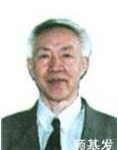
Jifa Gu is Professor of Operations Research and Systems Engineering at the Institute of Systems Science, Academy of Mathematics and System Sciences, Chinese Academy of Sciences. and Vice-president of IASCYS.
In his own words: “Matjaz Mulej and I had initiated to establish this academy during working as main leaders of IFSR and supported by other executive members of IFSR, since IFSR only has collective memberships without any like fellowship in other international organizations. We established the high standards for candidates of academicians of IASCYS.
At first the present academicians have high academic level and reputations in the various branches in Systems science and cybernetics, their knowledge are very widely to cover important branches in Systems science and cybernetics, then they come from different countries. Then each time nominating the new academicians is also a good process for us to get to know a new scholar and his knowledge.”
 European Union for Systemics
European Union for Systemics
The main aim of the European Union for Systemics is to favour and further development systemics and to coordinate activities related to it -at European scale- through:
- The promotion -at European scale- of research regarding systemics in itself as well as its applications.
- The development, confrontation, exchange, sharing and promotion of approaches and processes coming from transdisciplinary, multidisciplinary and interdisciplinary horizons and created based on systemic epistemology.
- The popularisation of that knowledge for people to familiarise with the systemic approach and for the teaching of its applications.
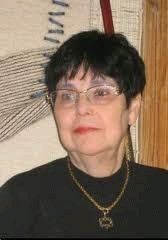 Andrée Piecq is General Secretary of EUS since 2011. Before that she was the president and also in charge of the 8th congress in Brussels about “Systemic approach of diversity: from knowledge to practice-from practice to knowledge” between 2008 and 2011.
Andrée Piecq is General Secretary of EUS since 2011. Before that she was the president and also in charge of the 8th congress in Brussels about “Systemic approach of diversity: from knowledge to practice-from practice to knowledge” between 2008 and 2011.
In her own words: “By providing a framework to put in synergy different disciplines; the European Union for Systemic must break down frontiers between specialists in various disciplines by allowing them to confront their ideas and so it promotes scientific, social, economic and technical development.
The European Union for Systemics through its transdisciplinary approach opens its doors to all the different fields and allows scientists to confront their views and theories. It has a relational function and an interface function with theoretical, methodological and practical systems. The EUS can also make the link with civil society because it supports training activities, congress, publications, summer universities… ”
Ukrainian Synergetic Society
Professor Iryna Dobronravova is the Chair of Philosophy and Methodology of Science in Kyiv Shevchenko University. She works in the field of philosophy of science, in particular in the area of philosophical foundations of synergetics and research of complexity. She was the head of the Ukrainian team in the INTAS project “Human Strategies in Complexity”. Since 2002 she is the President of the Ukrainian Synergetic Society and member of the Bertalanffy Centre for the Study of Systems Science.
In her own words: “The Ukrainian Synergetic Society is an opportunity to cooperate with scientists from different humanitarian disciplines (psychology, sociology, philology and others) and philosophers of science to elaborate synergetic methodology for exploration of the self-organization of complex systems over the institutional frames.
Currently the word “self-organization” is most fashionable in Ukraine. One of the tasks of the Ukrainian Synergetic Society was the dissemination of ideas of self-organization in social consciousness. Our analysis of the experience of the Orange revolution in 2004 and the good ground for perception of these ideas in the situation of social and political self-organization in Ukraine conduct this task. Our experience is the experience of self-organization of ourselves in a transdisciplinary and over institutional organization of Ukrainian scientists. We have no special finance supports, but have organizational support from our universities.”
Institut für Design Science München
Prof. Dr. Dr. (habil.) Rainer E. Zimmermann is the Chairman of the Executive Board and Scienti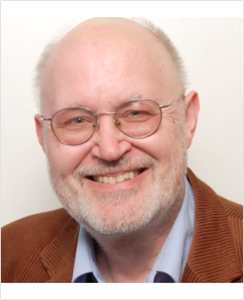 fic Director of the Institute for Design Science e.V. Munich.
fic Director of the Institute for Design Science e.V. Munich.
In his own words: “The institute edits the series of monographs “Schriften zur Design Science” which is published with Shaker, Aachen. In the meantime six such volumes have been published. Cf.: http://www.designscience.de/schriftenreihe.html
On the average, the institute organizes two conference meetings per year, mainly dealing with the two main branches of its research activities: philosophical foundations (mainly on the works of the late Schelling, and of Ernst Bloch) as well as social space theory (especially on complex urban systems). The research is based on aspects of what is called transcendental materialism, mainly involving applications of the theory of complex emergent systems and networks.
The institute is founded and publically recognized as a non-profit organization (Verein). It is mainly funded by member fees and donations.
The institute’s activities make it possible to quickly start research activities that otherwise could only start after a long administrative delay, if discussed in the various university boards, panels and/or committees.
The main task is to distribute insight and results concerning the present state of the art in systems, networks, and spaces.”
The World Organisation of Systems and Cybernetics (WOSC)
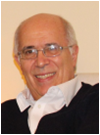 Professor Raúl is the director-General of WOSC and in his own words: “WOSC is a federation of associations and institutions devoted to systems and cybernetics. It was founded in 1969 by Professor J. Rose, who was its President until 1987, when this role passed to Professor Stafford Beer until his death in August 2002. Professor Robert Vallée took over and is WOSC´s current President. Dr Norbert Wiener is the President in Memoriam.
Professor Raúl is the director-General of WOSC and in his own words: “WOSC is a federation of associations and institutions devoted to systems and cybernetics. It was founded in 1969 by Professor J. Rose, who was its President until 1987, when this role passed to Professor Stafford Beer until his death in August 2002. Professor Robert Vallée took over and is WOSC´s current President. Dr Norbert Wiener is the President in Memoriam.
The World Organisation of Systems and Cybernetics (WOSC) is concerned with fostering international collaboration of all parties interested in General Systems and Cybernetics and in particular with the globalisation of the local and the localisation of the global. It aims at contributing to scalable transdisciplinary knowledge that supports dealing with today’s concerns of mankind as well as with the pressing local problems of particular communities. WOSC brings together people approaching from a wide range of local experiences issues of universal value and also people contributing to the reflexion of global concerns with a local impact. Their encounter in a common conversational space is making epistemological contributions and developing methodological approaches to deal with these most important challenges; its aim is overcoming fragmentation and blind disciplinarity without indulging in generalities. WOSC is supporting conferences and related activities to strengthen the systems and cybernetic communities; through them it wants to influence policy-makers in general and ordinary people in communities.
WOSC is organising this year its 16th triennial Congress at Ibague, Colombia from the 15th to the 17th of October. For more information go to: http://wosc-congress.unibague.edu.co/
WOSC offers a conversational platform across geography and culture. For me it is a platform for researchers and practitioners to interact and communicate both ‘virtually’ and ‘face-to-face’. WOSC, through its contribution to meetings like EMSCR 2012 and EMCSR 2014 and the organisation of congresses such as WOSC 2014, is actively promoting systemic and cybernetic research and networking throughout the world.
People will learn about the contributions to systems and cybernetics of a wide range of people like Humberto Maturana, Fernando Flores, Clas-Otto Wene, Markus Schwaninger, Ray Ison and many others; people who directly or indirectly have been and are supporting WOSC. The work of WOSC’s directors and also of those who formed and shaped this organization, is contributing to methodological and epistemological aspects necessary to understand and improve society.”


